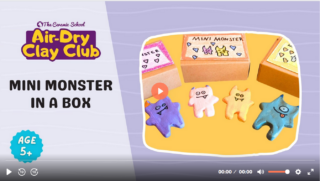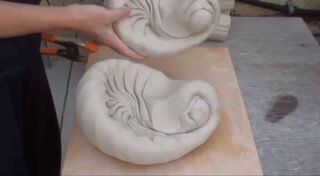So, you’ve dipped your creative fingers into the world of pottery, you’ve given away all you can to friends and family, and you still have too many pieces at home and need to make space for more! And so you’ve decided you need to sell your ceramics to real customers. But where do you find these customers? And how exactly do potters usually sell their ceramics anyhow?
Fear not, because today we’re going to explore three exciting avenues to sell your clay wonders: Direct Sales, Consignment, and Wholesaling. Each approach has its own quirks and perks, so let’s roll up our sleeves and dig in!
Selling Ceramics: Direct Sales
First up, we have the tried and true Direct Sales approach. Also commonly referred to as retail sales, you’re selling your ceramics directly to the customer, face to face. Think of it as a friendly conversation that ends with someone happily taking home your creation! Typically, you would start by selling in small volumes, with sales taking place in-person at craft fairs and markets. As your ceramic careers progress, you can take advantage of word of mouth sales, and move onto selling ceramics directly through your website or social media platforms. Work can be made in advance, or you can choose to take custom orders. This is often artists’ first approach to selling, and we’ll delve into the benefits and considerations of this approach to help get you started.
Benefit 1: You receive the full retail price!
Unlike selling through shops and galleries, if you price your work at $60, you will receive $60!
Considerations:
Direct sales can come with some expenses, so it is important to consider these before diving in. Markets and fairs require participation fees, and you’ll need an attractive booth display to make sure your work stands out from the crowd. Don’t forget to consider travel and accommodation costs, and your time commitment to sit at your stall all weekend talking to potential customers!
For online sales, you will have the recurring fees for your website, along with the time investment of keeping it up to date, responding to customers, packing and shipping orders, and building your audience.
Don’t let these concerns deter you! Take all of these expenses into consideration when pricing your work, and the investment will certainly pay off!
Benefit 2: You are your own salesperson!
Nobody knows your work better than you, and this translates well into making sales. Customers love a good story, and being on hand to explain your ideas and inspiration helps create a connection between the work, the customer, and yourself.
Considerations:
This aspect can be challenging if you are on the introverted side or lacking a little in confidence. Start by doing half-day or single day events to build your confidence, and pay close attention to the other vendors’ sales techniques. It is amazing how much you can learn from the person sitting next to you!
If after a few attempts you find that in-person sales are really not your cup of tea, focus your energy on online sales, where communication by email and direct messaging are the norm. The Ceramic School can help you get started with building your brand online through our Instagram for Potters Course!
Benefit 3: You will receive immediate feedback!
Whether it is through online likes and direct messages, or overheard conversations at your craft fair booth, direct sales allow you to hear opinions straight from the customer. With in-person sales, you have the added benefit of observation: which pieces are people gravitating towards? Picking up the most? Which are not getting much attention? Are there colors, forms, or sizes that are drawing people in? All of this is free research that will help your work to grow.
Considerations:
Sometimes we may hear feedback that is hard to take. You’ll be surprised how often people will chat to each other as though you are not there! Do not despair, positive feedback far outweighs the negative, and the advice being given is just as useful to you as all the compliments. Stay receptive to critical feedback, while remaining true to your creative vision!
Benefit 4: You will network with other artists and build a community!
This is one of the greatest benefits of direct sales, whether online or in-person. Ceramics can easily become a solitary act, and getting out and making sales is a great counterbalance to this.
When selling online, use your social media platform to connect to other artists. This can not only lead to knowledge sharing, but often to sales as well, as no one loves buying pottery more than other potters!
At in-person events, quiet moments present excellent opportunities to mingle, be inspired by others’ work, and get some great ideas for display and booth design. Don’t hesitate to ask other artists for advice, just be mindful of not blocking their booth to customers while you do so. Ceramic artists are a notoriously generous bunch, and love to share ideas and tips, and offer words of encouragement! Many multi-day events also offer social events such as dinners, award ceremonies, or even camping, further encouraging connection-building and friendships.
To get started selling at real-life events:
1) Make sure you have enough sellable ceramics in stock to make it worth your while.
2) Search online for upcoming shows, art fairs, or farmers markets.
3) Work out the costs involved for each event that you find, and figure out how much you need to sell to make it profitable for you.
4) Get in touch with the organizers and apply for a stall at the event.
5) If/When you get accepted, save the date and start promoting to your friends and family and social media followers right away – the sooner the better!
Selling Ceramics: Consignment
Next on the list is the enchanting realm of Consignment. Consignment is often artists’ first entry into shop sales, and it’s also the method used by most galleries. Basically, you drop off a load of work at the shop/gallery, and they display it nicely and try to sell your ceramics to their customer base. If they sell it, then sweet! – you get a portion of the sale. If they don’t manage to sell it though, you may end up with a box of returns after a couple of months.
Unlike direct sales, where you get the full retail value of your work, consignment splits the sale price between you and the seller. You are not selling your work to the shop or gallery, but paying them a fee to host your work and do the selling for you. Consignment rates vary by business, city, and country, but the most common split for shops is 60/40 (with the shop taking 40% of the final sale price), with galleries tending more towards 50/50. Consignment should always involve a written contract to protect you and your work, and to outline the commitments of each party. While it may initially feel unattractive to give up 40-50% of your retail price, there are notable benefits to selling consignment:
Benefit 1: You save time!
While in-person and online sales can be a lot of fun, they do require a lot of time. Whether you sell your ceramics online and are spending hours in the office setting up your online shop, packaging orders and driving to the post office, or you’re attending a 5 day fair selling directly to customers, all that time is time not spent in the studio making ceramics. So, with consignment, the shop or gallery takes on much of this work for you. They do the marketing, the displays, the sales, and the packing. And instead of dealing with multiple or even hundreds of potential customers a day, you only have to deal with the shop.
Considerations:
Shops and galleries serve a large number of artists, so remember to take the time to build a connection with them. The more they know about you and your work, the better they can promote you.
Benefit 2: Shops and galleries have pre-existing audiences that you can tap into!
Don’t want to spend your time doing online marketing to build up your name? Then this may be for you! Shops and galleries are established businesses, so they have already built up a customer base. This saves you a lot of work on marketing, and can put your work in contact with people you may not otherwise connect with on your own. This is particularly true of galleries, who frequently have a list of collectors and regulars.
Considerations:
Make sure you do your research before approaching consignment opportunities. Every shop tailors itself to a specific market, and you want to be sure your work is a good fit. Visit the shop to see what other types of work they sell, and how they present the work. This can provide excellent information about their target audience!
Benefit 3: You can sell your work in prime locations!
All of us dream about having that cute pottery shop on the high street, but finding an affordable commercial space in a prime area of town can be a challenge! By selling consignment, you can skip the financial stress of finding and managing a store of your own by working with shops already in those target locations. Most towns and cities will have craft-focused shops and galleries on the main downtown or center streets, and you will benefit greatly from the high foot traffic these locations receive. Many shops and galleries in these locations also participate in local street festivals and special events, such as Art Crawls, which allow increased sales and artist participation.
Considerations:
While galleries and craft shops are the obvious choice for selling your work, consider other specialty shops as well. Do you make ceramic instruments? Consider approaching your locally-owned music shop! Make plant pots and garden ornaments? Try the local florist! These types of shops are also found in city centers and will draw the target customer you are after.
Benefit 4: You don’t have to be an amazing salesperson!
One of our favorite T-Shirts is “Introverted, but willing to talk about ceramics!” While being a great salesperson is an excellent ability to have for any maker, some of us simply do not enjoy or feel comfortable doing it, especially when we are just starting out. Selling is indeed a skill, and it takes confidence and experience to really hone it. By choosing consignment, you get the benefit of someone who has already invested time and training into this task, giving you more time to hone your skills in the studio!
Considerations:
When you go this route, think of the shop or gallery as your client. While you do not have to sell every individual piece of work to them, you do have to sell the idea of yourself as the artist, and your body of work, to them. You are still selling your work, just in a different way!
Selling Ceramics: Wholesaling
Last but not least, we have the exhilarating world of Wholesaling, where you’re selling your pottery to retailers who will showcase your work far and wide. Wholesaling involves larger orders and, like consignment, you are paid a percentage of the final retail price, usually 50%. While it may offer a smaller payout than consignment, wholesaling comes with some unique benefits that should not be overlooked!
Benefit #1: You are paid upfront!
You heard that right, unlike consignment where you are paid a surprise amount at the end of the month for items sold during that period, wholesale orders are paid upfront. This can either be done at the time the order is placed, just prior to delivery, or a split between the two. You don’t have to wonder if your work is selling, or be afraid of receiving unsold work back later in the year! Knowing how much money you will receive in advance takes an enormous amount of stress off, and can help you have a better picture of the financial year ahead.
Considerations
Be sure to have a contract in place with your client before you proceed. In it, outline your payment schedule, your return policy, minimum order requirements, as well as your delivery time and method. With all of these concerns addressed in advance, you will set yourself up for a positive wholesaling experience!
Benefit #2: You don’t have to guess how much to make!
When establishing your wholesale relationship, you will present your client with your product and price list, and they will order set quantities of their desired items. Unlike with direct sales and (often) consignment, where you make an educated guess about how many of each item to bring to the fair or the store, here you are given precise numbers. This makes your studio time much more efficient!
Considerations
We all know that sometimes the kiln gods are less than kind to us, so be sure to make a few extra of each different item when filling orders. This gives you some wiggle room when those pesky glaze issues arise and reduces the risk of you falling short on orders.
When negotiating with your wholesale client, be sure to promote your best-sellers, and advise them on which products do well together. To keep them coming back each year, be sure to keep the creative juices flowing, and let them know about all the exciting new designs you have come up with since their last order.
Benefit #3: You have fewer individual orders to process and juggle!
Wholesaling can greatly reduce your administrative time! You are dealing with a select number of clients placing large orders, compared to doing many small orders. Imagine the difference in the time spent emailing, packaging, labeling, and shipping when you ship 40 mugs to one client in two boxes, compared to 40 mugs to 40 people in 40 boxes?! Not to mention the cost savings in packaging and shipping too!
Considerations
While bigger orders can bring big benefits, set yourself up for success by having a detailed order form for your client, and a detailed spreadsheet for yourself to help you track your production. Include things such as the item type, color, glaze, and quantity. For yourself, track the number of items you have made, bisqued, glazed, boxed, and shipped, as you work through each order. If you are organized from the beginning, navigating your wholesaling journey will be a breeze!
As you enter the exciting world of ceramic sales, do not feel restricted to just one of these sales categories! A diverse approach can work wonders, and also make for a more engaging experience for yourself and your customers. There is no one-size-fits-all approach, so mix and match to find what works best for you.
If you would like to really up your business game, head on over to our Ceramics MBA course! We’ll take you on a deep dive exploring all things relating to selling online, with some top instructors to support you on your journey.






Responses